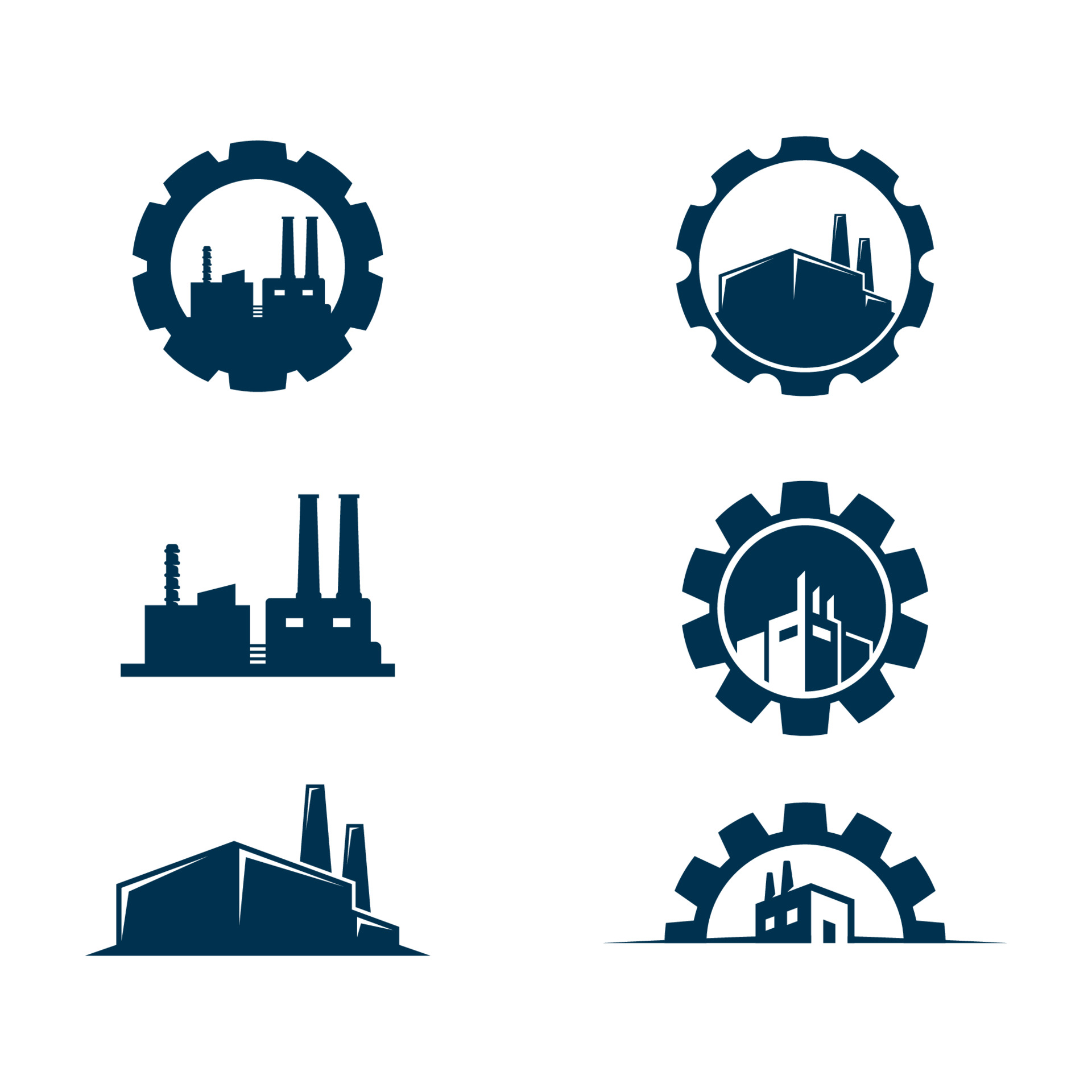So listen up, because we’re diving deep into the heart of the global industry landscape. Whether you’re an entrepreneur, a student, or just someone curious about how the world works, understanding the ins and outs of industries is like having a backstage pass to the economy. Think of it as the engine that drives progress, innovation, and, let’s be real, your paycheck. Stick around, because this is gonna be a wild ride!
Let’s face it, the term "industry" might sound boring at first glance, but it’s anything but. From tech startups disrupting traditional markets to manufacturing giants reshaping supply chains, the world of industry is constantly evolving. In fact, according to the World Bank, industries contribute roughly 30% of global GDP, making them a powerhouse of economic growth. So yeah, industries matter—big time!
Now, before we get into the nitty-gritty, let me set the stage. This article isn’t just another boring write-up. We’re going to explore everything from the latest trends shaping industries to the challenges businesses face in today’s fast-paced world. And hey, we’ll even throw in some stats, expert insights, and actionable tips to help you stay ahead of the curve. Ready? Let’s go!
Read also:Cheri Oteri Partner The Untold Story Behind The Comedy Queens Love Life
Understanding the Backbone of the Economy
What Exactly is an Industry?
Alright, let’s break it down. At its core, an industry is a group of companies or businesses that produce similar goods or services. Think of it like a family tree, where each branch represents a different sector. For example, the automotive industry includes everyone from car manufacturers to parts suppliers, while the tech industry spans everything from software development to hardware production.
Industries are categorized based on their primary activities. You’ve got primary industries like agriculture and mining, secondary industries like manufacturing, and tertiary industries like retail and finance. And let’s not forget quaternary industries, which focus on information and knowledge-based services. It’s like a giant puzzle, where each piece plays a crucial role in keeping the economy moving forward.
The Evolution of Industries
From Steam Engines to AI
Industries haven’t always looked the way they do today. Back in the day, the Industrial Revolution was all about steam engines, factories, and mass production. Fast forward to 2023, and we’re talking about artificial intelligence, robotics, and blockchain. It’s like industries have gone from riding horses to flying rockets in just a few centuries.
According to a report by McKinsey, digital transformation is reshaping industries at an unprecedented rate. Companies that fail to adapt risk getting left behind. For instance, the retail industry has been completely transformed by e-commerce giants like Amazon, while the automotive sector is shifting towards electric vehicles and autonomous driving. It’s a brave new world out there, folks!
Key Trends Shaping Modern Industries
1. Sustainability and Green Tech
Let’s talk about the elephant in the room—climate change. Industries are under increasing pressure to adopt sustainable practices. From renewable energy to circular economy models, businesses are finding innovative ways to reduce their carbon footprint. Did you know that the global renewable energy market is expected to reach $1.5 trillion by 2025? Yeah, that’s a big deal!
2. Automation and AI
Automation is no longer a buzzword; it’s a reality. Industries across the board are leveraging AI and machine learning to streamline operations, improve efficiency, and cut costs. For example, manufacturing plants are using robots to perform repetitive tasks, while healthcare providers are using AI to analyze patient data. It’s like having a team of super-smart assistants working 24/7.
Read also:Kat Timpf New Baby Name The Cutest Addition To The Family
3. Remote Work and Digital Collaboration
Who would’ve thought that a global pandemic would change the way we work forever? Remote work has become the norm in many industries, thanks to tools like Zoom, Slack, and Microsoft Teams. Companies are realizing that employees can be just as productive (if not more) when working from home. It’s a win-win situation for both employers and employees.
Challenges Facing Industries Today
1. Supply Chain Disruptions
Supply chains have been a hot topic since the pandemic hit. From semiconductor shortages to shipping delays, industries are struggling to keep up with demand. According to a study by Deloitte, 75% of companies experienced supply chain disruptions in 2022. It’s like trying to build a house without all the bricks—you’re gonna run into problems.
2. Cybersecurity Threats
As industries become more digital, they also become more vulnerable to cyberattacks. Hackers are getting smarter, and companies need to step up their game when it comes to cybersecurity. A single breach can cost millions in damages and damage a company’s reputation. It’s like leaving your front door unlocked in a bad neighborhood—not a good idea!
3. Talent Shortages
Industries are facing a skills gap like never before. With rapid technological advancements, there’s a growing demand for workers with specialized skills in areas like AI, data science, and cybersecurity. But here’s the catch—there aren’t enough qualified candidates to fill these roles. It’s like trying to find a needle in a haystack, but the haystack keeps getting bigger.
Opportunities for Growth
1. Emerging Markets
While developed countries are slowing down, emerging markets are booming. Countries like India, Brazil, and Indonesia are becoming hotspots for investment and innovation. Companies that tap into these markets early have a huge advantage. Think of it like discovering a hidden treasure chest—exciting, right?
2. Innovation Hubs
Cities like Silicon Valley, Shenzhen, and Tel Aviv are known as innovation hubs, where startups and tech companies thrive. These hubs provide access to talent, funding, and resources, making them ideal places for businesses to grow. It’s like being in the right place at the right time—and that’s priceless.
3. Cross-Industry Collaboration
Industries are no longer siloed; they’re collaborating like never before. For example, the healthcare industry is teaming up with tech companies to develop cutting-edge solutions. It’s like two different worlds coming together to create something amazing. And hey, who doesn’t love a good collaboration?
The Role of Technology in Industry Transformation
1. IoT and Smart Manufacturing
The Internet of Things (IoT) is revolutionizing manufacturing by enabling smart factories. These factories use sensors and data analytics to optimize production processes, reduce downtime, and improve quality. It’s like having a crystal ball that predicts potential issues before they happen.
2. Blockchain and Transparency
Blockchain technology is transforming industries by providing transparency and security. From supply chain management to finance, blockchain is being used to track transactions and ensure accountability. It’s like having a digital ledger that no one can tamper with—pretty cool, huh?
Industry Leaders and Their Impact
1. Elon Musk: The Visionary
Love him or hate him, Elon Musk is a force to be reckoned with. From Tesla to SpaceX, he’s pushing the boundaries of what’s possible. His vision for sustainable energy and space exploration is inspiring millions around the world. And let’s not forget his controversial tweets—they keep us entertained!
2. Satya Nadella: The Innovator
Satya Nadella has transformed Microsoft into a tech giant focused on AI and cloud computing. Under his leadership, the company has embraced diversity, inclusion, and innovation. His emphasis on empathy and collaboration has set a new standard for corporate leadership. He’s like the cool boss everyone wants to work for.
Measuring Industry Success
Key Performance Indicators (KPIs)
So how do we measure the success of an industry? It all comes down to KPIs. These are metrics that help businesses track their progress and identify areas for improvement. Common KPIs include revenue growth, customer satisfaction, and operational efficiency. Think of KPIs as a report card for industries—they tell you how well you’re doing.
Looking Ahead: The Future of Industry
1. Quantum Computing
Quantum computing is the next big thing in tech, and it’s set to transform industries like never before. With the ability to solve complex problems in seconds, quantum computers have the potential to revolutionize fields like healthcare, finance, and logistics. It’s like having a supercomputer in your pocket—mind-blowing!
2. Space Exploration
As industries look beyond Earth, space exploration is becoming a reality. Companies like SpaceX and Blue Origin are paving the way for commercial space travel and colonization. Who knows? Maybe one day we’ll all be living on Mars. Now that’s a future worth looking forward to!
Table of Contents
- Understanding the Backbone of the Economy
- The Evolution of Industries
- Key Trends Shaping Modern Industries
- Challenges Facing Industries Today
- Opportunities for Growth
- The Role of Technology in Industry Transformation
- Industry Leaders and Their Impact
- Measuring Industry Success
- Looking Ahead: The Future of Industry
- Conclusion
Conclusion
And there you have it, folks! The world of industry is a complex, ever-changing landscape filled with opportunities and challenges. From sustainability to AI, the trends shaping industries today are setting the stage for a brighter tomorrow. So whether you’re a business owner, an employee, or just a curious mind, staying informed is key to success.
Now it’s your turn. What do you think about the future of industries? Do you have any questions or insights to share? Drop a comment below and let’s keep the conversation going. And don’t forget to share this article with your friends and colleagues—it might just spark some interesting discussions. Until next time, stay curious and keep learning! Cheers!



